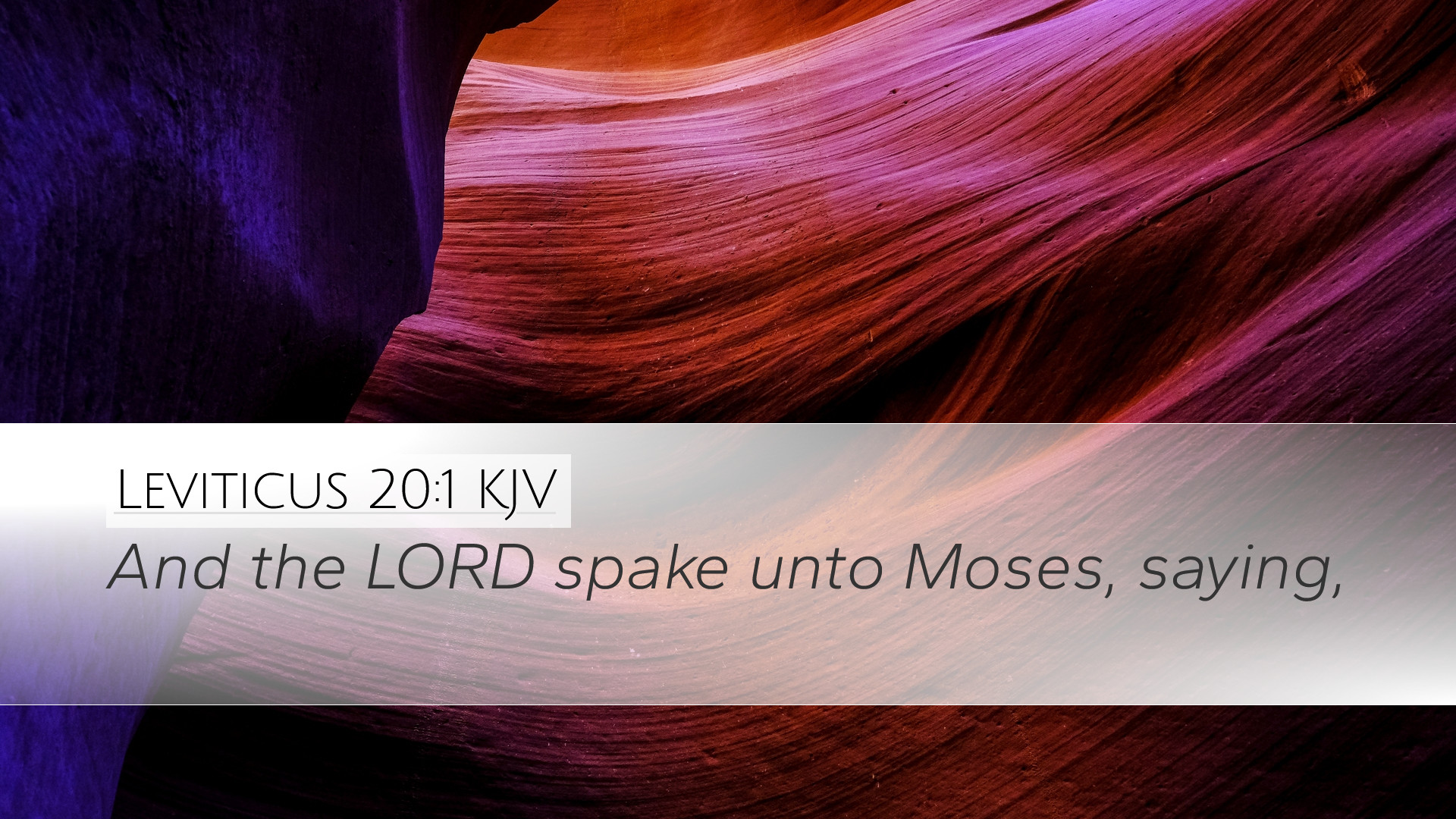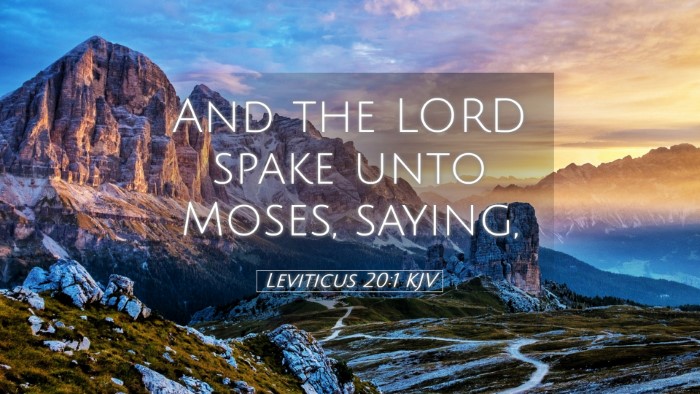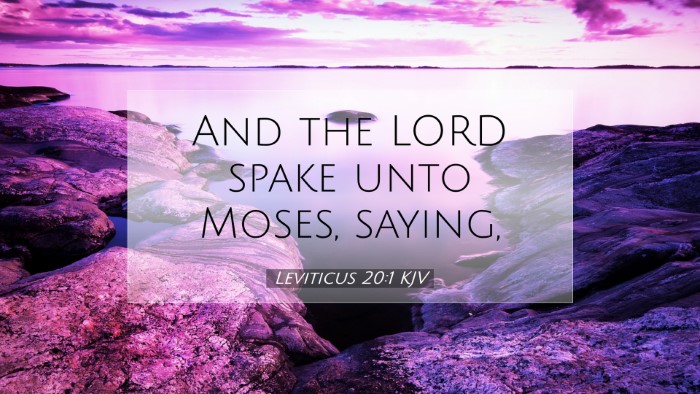Commentary on Leviticus 20:1
Verse: "And the LORD spake unto Moses, saying," (Leviticus 20:1)
Overview
The verse serves as an introduction to a significant section of divine laws that God is about to give through Moses concerning serious moral and ceremonial issues within Israel. This passage is crucial as it reveals God's holiness and the expected conduct of His people.
Divine Authority of the Commandments
The phrase "And the Lord spake" emphasizes the direct communication from God to Moses. The commentators unanimously stress the importance of recognizing God's authority in delivering these laws. As Matthew Henry notes, "The commands come from the mouth of the Lord Himself, who has the supreme authority over His people." This highlights not only the seriousness of the laws but also affirms that their observance is a matter of obedience to God.
Contextual Significance
This verse introduces a series of laws that address various forms of idolatry and immorality, reflecting the socio-religious context of the Israelites in Canaan. Albert Barnes provides insight by asserting that "these laws are not simply ancient customs, but are deeply rooted in the covenant relationship between God and Israel." The gravity of these commands arises from their association with the character of God and the sanctity of His people.
Moral Implications
As we progress through Leviticus 20, we encounter regulations that imply severe consequences for transgressions. Adam Clarke elaborates that "the repercussions outlined indicate the seriousness of sin in light of God’s holiness." Each stipulation delineates behaviors that were abominable to the Lord, underscoring how moral and spiritual purity is paramount for His people.
Understanding of Sin
This verse and the subsequent commands engage with the understanding of sin in a covenant community. Matthew Henry pointedly remarks, "Sin is not only a breach of the law but a violation of the relationship that exists between God and His people." Thus, the laws not only function as punitive measures but also serve to maintain a healthy relationship between God and Israel.
Consequences of Disobedience
The severe consequences laid upon individuals who break these commandments, as later described in the chapter, reflect God’s justice. Albert Barnes succinctly expresses, "Divine justice demands that sin cannot go unpunished," aligning with the concept that the LORD's holiness cannot tolerate impurity among His chosen people.
The Role of Moses
Moses acts as the intermediary in this divine communication, representing the people before God. Adam Clarke emphasizes the significant role of Moses as “a prophet who bears the weight of God’s directives and relays them to the people.” This underscores the importance of prophetic mediation in the Old Testament context.
Applicability for Believers Today
While the specific ceremonial laws may not apply to New Testament believers, the moral principles underlying the commands remain relevant. Matthew Henry writes, "The holiness God demanded from Israel continues to echo in the lives of believers today." It calls for a reflection on the nature of holiness and how it manifests in Christian living.
Conclusion
Leviticus 20:1 stands as a proclamation of God’s intention to guide His people in righteousness through His words spoken to Moses. This verse encapsulates the essence of divine communication concerning moral law, emphasizing obedience, the consequence of sin, and the call toward holiness. Engaging deeply with these texts invites pastors and theologians to cultivate a greater understanding of God’s unchanging character and His desire for a holy people.


